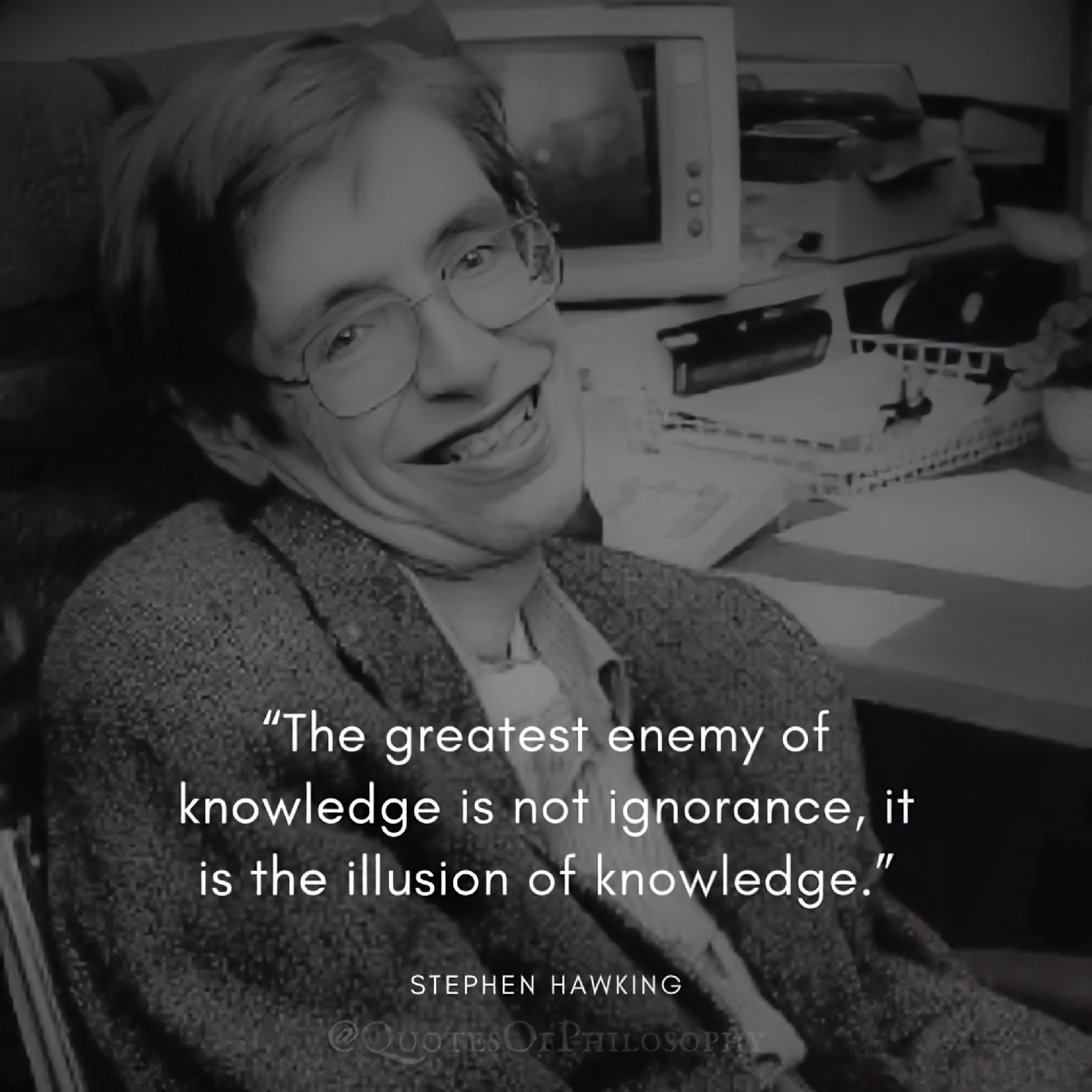The quote by Stephen Hawking, "The greatest enemy of knowledge is not ignorance, it is the illusion of knowledge," addresses a profound impediment to intellectual growth: the misconception that one already possesses sufficient understanding.
The quote by Stephen Hawking, "The greatest enemy of knowledge is not ignorance, it is the illusion of knowledge," addresses a profound impediment to intellectual growth: the misconception that one already possesses sufficient understanding. This illusion can stifle curiosity, close off dialogue, and halt the questioning that drives the expansion of our knowledge.
Certainty is a comfortable state of mind. It provides a sense of security and stability. However, when certainty is unfounded, it becomes a barrier. The 'illusion of knowledge' is a state where one believes they have grasped the essence of a matter without having delved into its depth. This state is perilous because it masquerades as wisdom. It is a veneer that can easily crack under the pressure of new evidence or more profound inquiry, yet while it holds, it can prevent the kind of rigorous self-examination and external questioning necessary for true understanding.
Real knowledge is fluid and ever-expanding. It acknowledges its own limits and embraces the unknown. The pursuit of genuine knowledge thus requires humility and the recognition that what we know is only a fraction of what there is to know. It is through this lens that curiosity becomes a virtue and wisdom an ever-evolving journey rather than a destination.
Hawking's insight encourages us to remain students of life, constantly seeking, never fully satisfied with our current level of understanding. In an era abundant with information, where opinions and 'facts' are often unvetted and contradictory, the ability to remain open, to question, and to learn is more valuable than ever. It demands of us a rigorous discipline: to listen more than we speak, to seek more than we assert, and to reflect more than we proclaim.
In essence, the illusion of knowledge is a shadow that can only be dispelled by the light of persistent inquiry. It is in admitting 'I do not know' that we open the door to true knowledge and wisdom.


